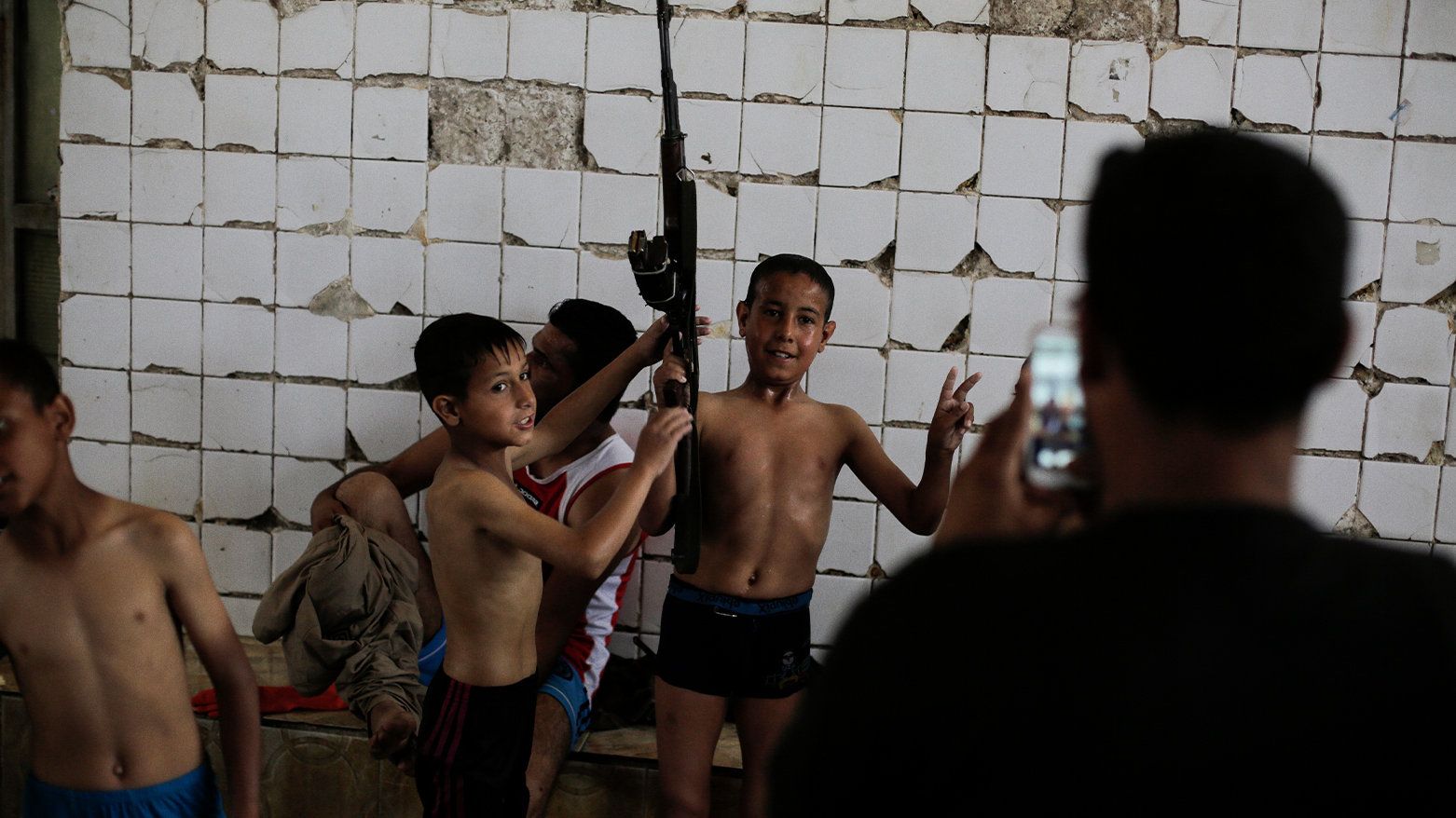Spread of unlicensed weapons in Iraq: A Persistent Challenge Despite Government Efforts
Despite governmental attempts to curb this phenomenon, results remain unsatisfactory.

Erbil (Kurdistan 24) - A report by a well-known Arabic website highlights several factors contributing to the widespread presence of weapons in Iraq, including the numerous wars and security incidents the country has endured over the past decades.
Despite governmental attempts to curb this phenomenon, results remain unsatisfactory.
The report notes that it is challenging to determine the exact number of weapons in Iraqi possession, often described as “unlicensed weapons.” Unofficial estimates suggest that Iraqis possess over 15 million weapons, ranging from light to heavy arms, which explains the frequent random use of these weapons.
Observers attribute the proliferation of unlicensed weapons primarily to the government's inability to enforce the law universally. Political researcher Omar al-Janabi told Al-Araby Al-Jadeed, the website that published the report: “There is no clear definition of unlicensed weapons in Iraq, and these weapons have not been confined to a specific group, being linked to influential parties since the regime established post-2003 occupation. It's challenging to regulate something so undefined, especially without a party capable of enforcement.”
Al-Janabi further explained, “There is what is known as the ‘resistance weapon,’ sometimes official under the Popular Mobilization Authority and sometimes unofficial under the ‘Islamic Resistance.’ Many armed factions fall under the government umbrella. There is also the ‘tribal weapon,’ which emerged during Nouri al-Maliki’s government (2006-2014) and fuels ‘tribal conflicts,’ particularly in southern and middle Euphrates regions, where tribes clash using heavy and medium arms. Additionally, individual weapons are common in most homes, often tied to armed factions, security services, or tribal groups.”
He pointed out another category, the weapons of international groups in Iraq, particularly along the Syrian border and northern regions, linked to organizations like the Kurdistan Workers’ Party (PKK). The removal of these weapons is beyond Iraqi authorities' control and tied to international interests. “A government representing political and regional interests cannot contain unlicensed weapons used significantly by parties forming and supporting the government. These governments fear opening internal fronts they can't control and losing external allies whose loss might topple the entire government,” Al-Janabi said.
In May alone, at least 40 Iraqis were killed in various criminal incidents or tribal conflicts, all involving unlicensed weapons. Iraqi Prime Minister Mohammed Shia al-Sudani pledged in his government program to end the phenomenon of unlicensed weapons outside official institutions. However, a source within a security apparatus stated, “What al-Sudani wants is not easily implemented due to several obstacles.” The anonymous source added, “The arms market in Iraq is hard to control. Weapons are readily available for purchase, sometimes sold by individuals connected to official bodies like the Popular Mobilization Forces, complicating accountability. This requires a political decision before a security one.”
Dr. Mohammed al-Jubouri, an Iraqi doctor, described the idea of ending the spread of weapons in Iraq as “a fantasy,” noting that despite numerous governmental promises, no significant action has been taken. “unlicensed weapons threaten everyone, even doctors face death threats while working in hospitals. Many doctors have left the country, been killed, or forced to pay for their safety due to patient deaths beyond their control. unlicensed weapons are a major security challenge,” al-Jubouri said.
Military and security experts warn of the serious repercussions of widespread weapons. Retired Brigadier General Hassan al-Ubaidi told Al-Araby Al-Jadeed that the primary reasons for unlicensed weapons include lack of security and stability, administrative corruption, and political and social tensions. He warned, “The proliferation of weapons increases chaos and violence levels in the country.” He highlighted the recurring tribal conflicts in the southern governorates, some lasting several days with combatants using light and medium weapons, even rocket-propelled grenades. “Easy access to weapons fuels crime and exacerbates sectarian and political tensions,” al-Ubaidi stated.
Al-Ubaidi stressed the need for a serious approach to combat unlicensed weapons by “enhancing security capabilities, boosting international efforts against smuggling and illegal arms trafficking, and developing educational programs to raise societal awareness on rejecting violence, leading to progress for individuals and the nation.”